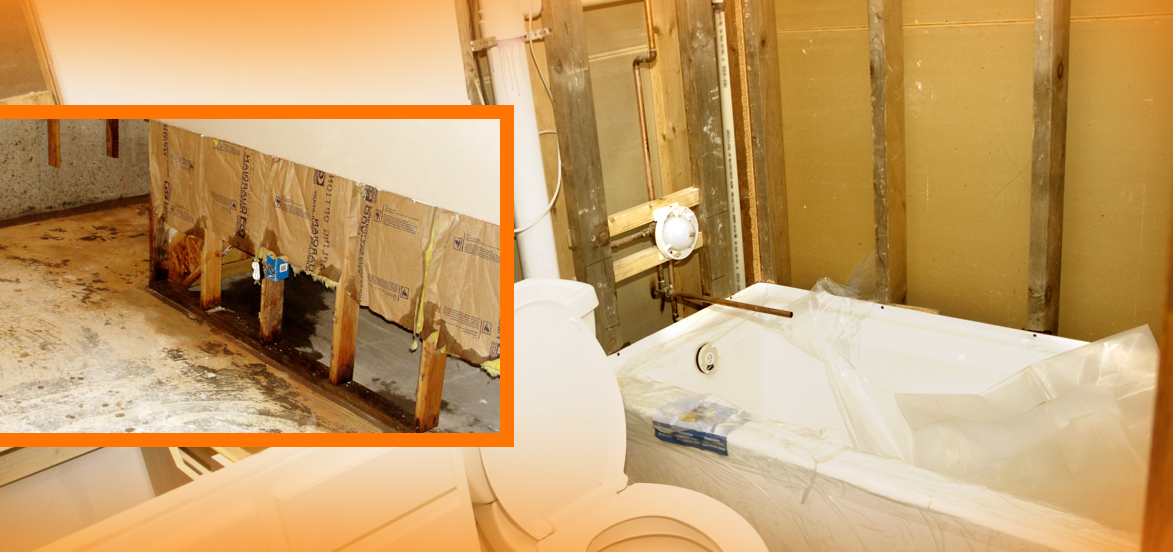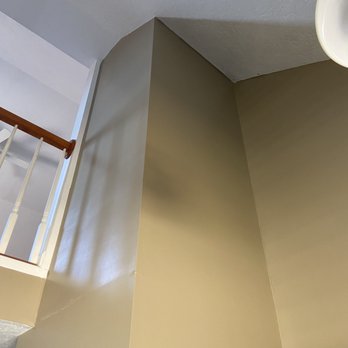
Drywall is a widely used material in construction. Although drywall is durable and lightweight it can also be easily damaged. Installers who are professionals will ensure that your property is of the highest quality.
Drywall is used to replace plaster or wooden. Drywall is most commonly used for interior walls. This type of wall construction involves using a gypsum-based core to create a solid, insulated surface. It can become damaged over time and can be very difficult to repair.
Joint compound can be used for filling in cracks and holes in drywall. Once the mud has dried, you can then paint the wall with a new coat of color. You can give your drywall a more attractive finish by applying a second coat to blend the taped joints.
If you have a large hole in your drywall, it may be time to call in a professional. An experienced handyman/contractor can handle the job efficiently and quickly for a fair price.

If you are attempting this project yourself, ensure that you carefully read the instructions. Wearing safety goggles or gloves is also a good idea. Clearing the area is necessary before you begin. Then, you can begin measuring and marking. You can also use a square guide to mark damaged areas if the wall has been broken in multiple places. You can use a sharp razor blade to remove the hole.
To fix a minor abrasion or scrape, you will need a drywall smoothing tool. A utility knife can also be used to check that the drywall is level with the surrounding joints. After you have finished, you can use a drywall knife to apply the last thin layer.
You should be careful if your home is older and contains asbestos or lead paint. Make sure your home is free from these materials before you begin drywall installation. It is crucial to use the right tools in order to ensure a successful and safe project.
Dents are another common problem. A spackle, or sander, might be useful in repairing dents in drywall. While a sander can remove dents, a spackle is the more cost-effective solution.
Drywall can get damaged by moisture and abrasions. These types of problems can cause the material to weaken, and it can let pests and moisture into your home. The majority of drywall damage is not severe, but it is worth checking for signs of damage. For smaller holes, a patch is usually enough. Larger holes may require extensive repairs.

You have two options: either hire a handyman to do the drywall installation and repair, or you can do it yourself depending on the extent of the damage. A professional handyman should be capable of doing the job for between $60 and $90 an hour.
For more serious drywall repairs, it is better to hire professionals. The services of professionals include taping, sanding, and even securing the wall. The right professionals will save you time and money over the long-term.
FAQ
Do you prefer to hire a general contractor, or a subcontractor for your project?
It is more expensive to hire a general contractor than to subcontract. A general contractor has many employees, so they often charge their clients a lot of money for labor costs. A subcontractor on the other side only employs one person, so he/she charges less per-hour.
Do I have to renovate my entire house?
Why pay someone to do it for you when you can do it yourself?
It doesn't really matter how much you love DIY. There will always be times when you just can't do it. It may be impossible to control the many variables.
An example: If your house is older than you think, it might be that the wiring is unsafe. You will need an electrician to inspect and make sure that your system is reliable and safe.
Consider that you may not be able repair any structural damage that might have occurred during the renovation.
In addition, you might not have the tools necessary to complete the job properly. If you want to install a new kitchen faucet, you will need a plumber's serpent, which is a tool that clears clogged pipes.
There are plumbing codes that will require you to hire a licensed plumber for your project.
It is important to understand your capabilities before embarking on such a large task.
If you are unsure whether you can tackle the job yourself, ask for help from friends and family members who have done similar projects before.
They can help you determine the right steps and where you can find out more.
What should I do first when renovating my house?
Fixing up a home starts with cleaning out all the clutter from inside and outside. Next, you will need to eliminate mold, repair or replace any damaged walls, repaint your entire interior, and fix any leaky pipes. Finally, you will need to wash the exterior surfaces clean and paint.
Is it more expensive to remodel an existing house than to build one new?
If you're thinking about building a new home, there are two options for you. The other option is to purchase a prebuilt home. This type of home can be moved in to immediately after it is built. A custom-built home is another option. You will need to hire a professional builder to help design and construct your dream home.
How much time and money it takes to design and plan a new house will affect the cost. You'll probably need to do the majority of the construction work yourself if you build a custom home. This will require more effort. But you still have control over the materials you choose and how they are placed. It might be easier to find a contractor that specializes in custom-built homes.
A new house is generally more expensive than a home that has been renovated. That's because you'll pay more for the land and any improvements you make to the property. Permits and inspections are also required. The average price difference between a new home and one that has been renovated is between $10,000 and $20,000.
You can live in a house while it is being renovated.
Yes, I can live in my house while renovating it.
You can live in a house that is being renovated while you are renovating it. The answer depends on how long the construction work takes. If the renovation takes less than two months, then you can live in your house while it is being built. If the renovation takes longer than two weeks, however, you can't live in your home during the construction.
You should not live in your house while there is a major building project underway. This is because you could be injured or even killed by falling objects on the construction site. The heavy machinery and noise pollution at the job site can also cause dust and noise pollution.
This is especially true for multi-story houses. If this happens, the sound and vibration caused by the construction workers can cause significant damage to your home and contents.
As I mentioned before, while your home is being remodeled, you'll have to manage the inconveniences of living in temporary shelters. This means that your home won't provide all the amenities you need.
As an example, your washer and dryer will be out of commission while they are being repaired. It will be difficult to bear the smell of paint fumes as well the sounds that workers make.
All these factors can result in stress and anxiety within your family. To avoid becoming overwhelmed by these situations, it's important to plan ahead.
Do your research before you begin renovating your home. You can avoid costly mistakes later.
It is also advisable to seek professional assistance from a reputable contractor so that you can ensure that everything goes smoothly.
Statistics
- The average fixed rate for a home-equity loan was recently 5.27%, and the average variable rate for a HELOC was 5.49%, according to Bankrate.com. (kiplinger.com)
- Design-builders may ask for a down payment of up to 25% or 33% of the job cost, says the NARI. (kiplinger.com)
- On jumbo loans of more than $636,150, you'll be able to borrow up to 80% of the home's completed value. (kiplinger.com)
- ‘The potential added value of a loft conversion, which could create an extra bedroom and ensuite, could be as much as 20 per cent and 15 per cent for a garage conversion.' (realhomes.com)
- According to the National Association of the Remodeling Industry's 2019 remodeling impact report , realtors estimate that homeowners can recover 59% of the cost of a complete kitchen renovation if they sell their home. (bhg.com)
External Links
How To
Where can you find information about home improvement?
You can save money on home improvements while still improving your home. You can make your home more attractive and cost-effective without spending a lot. Some ideas include painting, landscaping, and even adding a hot tub. You can find many resources online to help you make these changes.
There is a lot of information available on the internet regarding home improvement projects. Many websites offer detailed instructions for how to accomplish various tasks. Many of these websites include photos of completed projects so that you can visualize how your home would look after each task is complete.
Professionals might also publish articles on home improvement topics. A magazine article might tell you which paint is best for your walls. This article might give you ideas on how to choose colors and paint types that match your existing decor.
There are websites that offer home improvement advice and recommendations. Houzz.com is a great place to find out more about home improvements. Each website has useful information about the products and services you may be interested in.
Some websites are only for home improvement. Lowe's.com can be used to look through its catalog of tools, materials and supplies for home improvement projects. It is possible to find helpful information on how you can choose and install window coverings.
Home improvement projects are fun, exciting, and rewarding. These are the things you can do to improve your home.